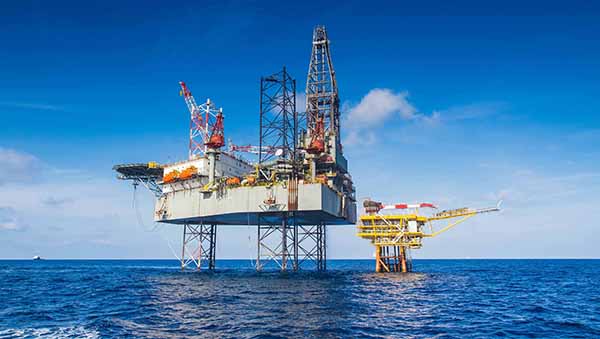In today's digital age, the complexity of ocean engineering is increasing day by day. In order to cope with the harsh conditions and growing data demand in the marine environment, Industrial Switch has become an indispensable key technology in marine engineering. This article will delve into the application of industrial switches in marine engineering, revealing their important role in ensuring communication stability, improving data processing efficiency, and ensuring engineering security.
1. Challenges and Opportunities in Ocean Engineering:
Marine engineering often faces harsh marine environments, such as seawater erosion, strong winds and waves. Traditional communication equipment is difficult to maintain stable operation under such conditions. However, with the continuous development of marine engineering, the demand for reliable, efficient, and secure communication and data transmission is constantly increasing, which also provides opportunities for the widespread application of industrial switches in marine engineering.
2. The key role of industrial switches in marine engineering:
1) Anti corrosion design:
The design of industrial switches takes into account the corrosion issues that may be encountered in marine environments. The use of corrosion-resistant materials and sealing design ensures stable operation of the equipment in humid and high salinity marine environments for a long time, improving the reliability and lifespan of the equipment.
2) High bandwidth transmission:
Marine engineering involves a large amount of data transmission, including sensor data, video surveillance, robot operations, etc. Industrial switches provide high bandwidth data transmission channels to ensure timely and rapid transmission of data in marine engineering, meeting the needs of real-time monitoring and control.
3) Network topology optimization:
Industrial switches support flexible network topologies and can be optimized and configured according to the specific needs of marine engineering. By designing a reasonable network topology, improving data transmission efficiency, reducing network latency, and ensuring smooth communication among various nodes in marine engineering.
4) Remote management and maintenance:
In marine engineering, equipment is usually distributed in vast sea areas, making it difficult to perform routine on-site maintenance. Industrial switches support remote management and maintenance, reducing maintenance costs and improving the maintainability of engineering through remote monitoring, configuration, and fault diagnosis.

3. Practical case: Application of industrial switches in offshore oil field monitoring:
Taking offshore oil field monitoring as an example, the application of industrial switches is particularly important. Offshore oil fields are widely distributed on the sea surface, requiring extremely high real-time monitoring and timely response of data. Through the application of industrial switches, the following optimizations can be achieved:
1) Connection of underwater sensor network:
Industrial switches can easily connect sensor networks distributed on the seabed by supporting large-scale connections. These sensor networks are responsible for collecting temperature, pressure, geological information, and other data from the bottom layer of the ocean, providing important basis for the safety and production of oil fields.
2) Real time data transmission and processing:
The high bandwidth transmission capability of industrial switches ensures real-time data transmission from underwater sensors to monitoring centers. In offshore oil fields, rapid response to geological and weather changes is crucial, and industrial switches provide a stable network foundation.
3) Remote monitoring and maintenance:
Through the remote management function of industrial switches, the monitoring center can remotely access and manage the underwater sensor network at any time, and perform real-time monitoring and remote maintenance of equipment. This remote controllability greatly improves the stability and reliability of the system.
4. Future outlook:
With the continuous development of technology, the application of industrial switches in marine engineering will continue to expand. In the future, we can look forward to more intelligent and adaptive industrial switches to better adapt to the complexity of marine environments. Meanwhile, with the popularization of 5G technology, industrial switches will better support the demand for high-speed, high-capacity, and low latency communication in marine engineering.
As an important component of marine engineering, industrial switches provide reliable technical support for the stable and efficient operation of marine engineering. Its anti-corrosion design, high bandwidth transmission, network topology optimization, remote management and maintenance, and other characteristics enable it to demonstrate its skills in many scenarios of marine engineering. In the future, with the continuous progress of technology, the application of industrial switches will bring more innovation and breakthroughs to marine engineering, helping humanity better grasp the ocean going field. In the wave of digitization and intelligence, industrial switches will continue to play a crucial role in driving marine engineering towards a safer, more efficient, and sustainable direction.
In short, the application of industrial switches is not only a technological breakthrough, but also an important lead for the future of marine engineering. By continuously optimizing design and strengthening functional expansion, industrial switches will become the backbone of digital transformation in marine engineering, helping humans better explore, utilize, and protect marine resources. On the road of ocean control, industrial switches help marine engineering achieve broader development prospects.
Contact: sales
Phone: 18688787693
E-mail: sales@hsindustrialswitch.com
Add: Room 608, Building B,GaoXinQi TEC Park,Baoan District, ShenZhen,China